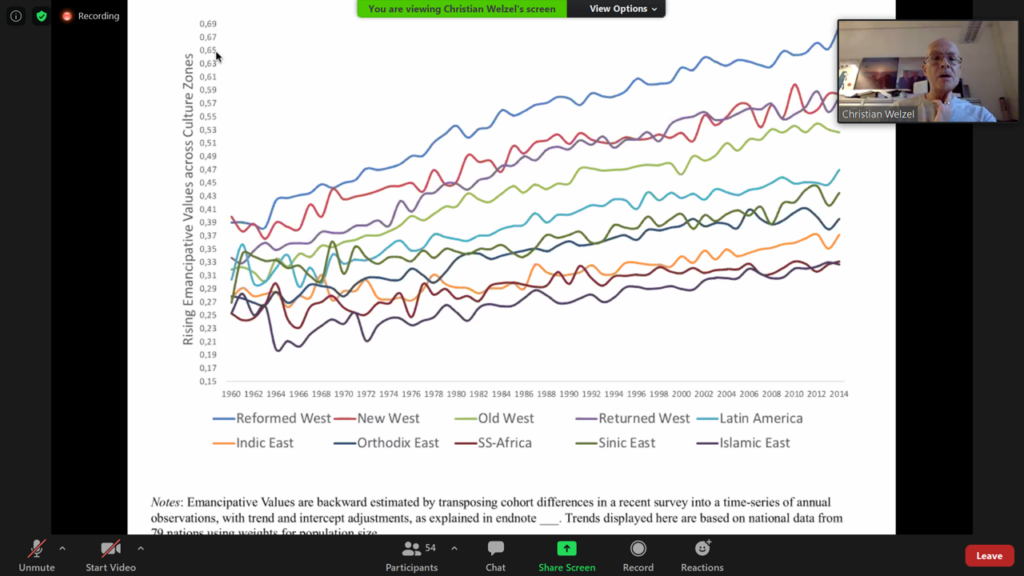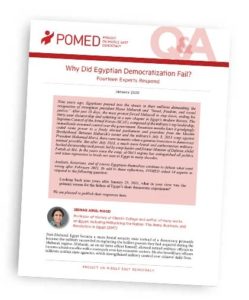
Largest Arab opinion poll finds ‘huge appetite’ for democracy
A significant majority of Arab citizens favor a democratic political system, with 76% in favor and only 17% opposed, according to the largest opinion poll of its kind released by The Arab Center for Research and Policy Studies (ACRPS). Some 74% of respondents believe a pluralist democratic system is appropriate for their countries. Yet, with almost 30,000 respondents across 13 Arab states and more than 900 researchers, the survey revealed division on the question if whether MENA societies are “prepared to practice” democracy.
The Arab public has a negative view of Islamic State or ISIL (92 percent), while a small majority views the Arab Spring as positive.
Support for democracy was highest in the Levant and Maghreb, but the largest bloc of opinion (57%) said their priorities are economic, with more than half of respondents citing unemployment, high prices, poor economic conditions, and poverty as the most important challenges facing their country. Some 16% cited priorities related to government performance and policies, including poor public services, financial and administrative corruption, governance, and problems of democratic transition.
Interpretations of democracy also varied, the survey found:
- 39% of the citizens of the Arab region define democracy as a guarantee of political and civil freedoms
- 20% of them said that democracy is a guarantee of equality and justice among citizens
- 14% focused on participation and institutions (alternation, separation of powers, etc.)
9% defined democracy as a guarantee of security and stability - 7% defined it as improving economic conditions.

Recent accounts of democratic backsliding neglect the cultural foundations of autocracy-vs-democracy, argues Christian Welzel of the World Values Survey. To “bring culture back in,” he shows that
- countries’ membership in culture zones explains some 70 percent of the global variation in autocracy-vs-democracy
- this culture-bound variation has remained astoundingly constant over time — in spite of all the trending patterns in the global distribution of regime types over the last 120 years.
The explanatory power of culture zones over autocracy-vs-democracy lies in the cultures’ differentiation on “authoritarian-vs-emancipative values,” he told the Laboratory for Comparative Social Research:
Against this backdrop, regime change happens as a result of glacially accruing regime-culture misfits — driven by generational value shifts into a pre-dominantly emancipatory direction. Consequently, the backsliding of democracies into authoritarianism is limited to societies in which emancipative values remain under-developed. Contrary to the widely cited deconsolidation-thesis, the prevalent generational profile in people’s moral orientations exhibits an almost ubiquitous ascension of emancipative values that will lend more, not less, legitimacy to democracy in the future.
 Other key findings of the ACRPS poll:
Other key findings of the ACRPS poll:
- Arab public opinion is split on the performance of parliaments’ oversight of government or representation of society. Approximately half of respondents (47%) believe that parliaments are carrying out their duties properly, while the other half do not.
- Since 2011, the majority of respondents have looked positively at the Arab Spring, with 58% stating that the revolutions and protests of the Arab Spring were positive (very or somewhat positive).
- 48% of respondents stated that the Arab Spring is facing obstacles but will ultimately achieve its goals.
- 91% of Arabs believe that financial and administrative corruption is present in their country to varying degrees.
The full report can be accessed here.
 The Egyptian regime has reacted in an unexpected way to the global pandemic—with civilian, technocratic, and expert bodies leading the way and even some (admittedly officially patrolled) political debate being allowed to emerge, Stanford CDDRL’s Program on Arab Reform and Democracy observes. A forthcoming talk examines recent developments and evaluates whether they mark a real change in Egyptian governance, and if so, why, what kind, and will it last.
The Egyptian regime has reacted in an unexpected way to the global pandemic—with civilian, technocratic, and expert bodies leading the way and even some (admittedly officially patrolled) political debate being allowed to emerge, Stanford CDDRL’s Program on Arab Reform and Democracy observes. A forthcoming talk examines recent developments and evaluates whether they mark a real change in Egyptian governance, and if so, why, what kind, and will it last.
Egyptian Governance and the Pandemic
Featuring
Amr Hamzawy, Senior Research Scholar, CDDRL, Stanford University
Nathan Brown, Professor of Political Science and International Relations, The George Washington University
Friday, October 16 | 11:00AM-12:15 PM (Pacific Standard Time)
Online, via Zoom: Click here to register.
Why Did Egyptian Democratization Fail? asks POMED, a partner of the National Endowment for Democracy (above).